Bretwalda Battles
The Wars of the Roses
The Battle of Towton 1461
by Leonard James
Published by Bretwalda Books
Website : Facebook : Twitter : Blog
This ebook is licensed for your personal enjoyment only. This ebook may not be re-sold or given away to other people. If you would like to share this book with another person, please purchase an additional copy for each person. If you're reading this book and did not purchase it, or it was not purchased for your use only, then please purchase your own copy. Thank you for respecting the hard work of this author.
First Published 2014
Copyright Leonard James
Leonard James asserts his moral rights to be regarded as the author of this work.
ISB N 978-1-910440-21-6
Contents
The Wars of the Roses
The civil wars that tore England apart in the later 15th century are known to historians as the Wars of Roses, since the two factions chose different coloured roses among their symbols - white for York and red for Lancaster. Although the background to the wars was complex and the shifting allegiances of the fighters is often difficult to follow, the main issue at stake was simple: What should be done if the king was incapable of competent rule?
By this date the person who sat on the throne of England was determined by strict rules of primogeniture. The eldest son of the previous monarch became king. If there was no son, the eldest daughter became queen. If there were no children than a younger brother took over, or if he had died, his children. The advantages of the system are clear:There could be no dispute over who should be the next monarch and so no disagreements that might lead to civil war.
The system of primogeniture had been growing increasingly important, but had been cemented in 1216 when King Henry III took over from his father King John despite being aged only nine years old at the time. The formal proclamation of Henrys right to the kingship mentioned only that he was the oldest son of the previous king.
King Henry VI reigned from 1422 when he inherited the throne at the age of just nine months. He grew up to be a weak, indecisive man who suffered episodes of mental illness. His inability to keep a firm grip on government led to the Wars of the Roses.
At the same time the reigning monarch was expected to lead the government of the kingdom in a very real way. It was the king who made all the big decisions, and the king who appointed officials to look after less important issues. The king could appoint who he liked, and sack them if they did not act as he wished. Such autocratic power had long been less impressive than in theory it seemed.
Since Magna Carta was agreed in 1215 the monarch had been obliged to obey the law of the land, and he had always been expected to take into account the views and opinions of his nobles and the Church. Increasingly the monarch also had to listen to the views of the richer commoners, who elected men to sit in Parliament and who had to agree before any new tax could be levied. Nevertheless, the king was the most powerful man in the kingdom and while he had to listen to others, the final decision was his.
What nobody seems to have considered was what should happen if the King of England was incapable of making decisions. In an earlier age unsuitable monarchs were dealt with crudely - In 1327 Edward IIhad been murdered on the orders of his wife and a gang of senior noblemen - but by the later 15th century such brutal acts were no longer possible. The law had to be obeyed.
The problem was forced into sharp focus in 1453 when King Henry VI had a mental breakdown and was simply incapable of making any decisions. The nobles called a Great Council to consider what should be done, and appointed the kings cousin Richard, Duke of York, to be Protector of the Realm. York was effectively given the powers of the king until such time as Henry should regain his sense. York proved to be far more efficient, effective and competent than Henry VIhad been. After years of growing injustice, corruption and tyranny, England suddenly experienced a bout of good government.
In January 1455 Henry recovered his sense and retook the reins of power. At once he reversed nearly everything York had achieved. Corrupt officials who York had sacked were reinstated, feuds were revived and justice again denied the people. The English nobles and the richer commoners were in a dilemma. Henry was the anointed king, but York was the better ruler.
Those returning to power, led by Henrys wife Queen Margaret and her favourite, the Duke of Somerset, were determined to get revenge on York and the barons who had supported him - especially the Duke of Salisbury and the Earl of Warwick from the rich and talented Neville family. In April 1455 York, Salisbury and Warwick mustered a body of armed men and set out to see the king, justifying their army on the grounds they feared that they would be murdered by Somersets men.
The two bodies of men clashed at St Albans on 22 May in what historians have dignified with the title First Battle of St Albans, but which was in fact more of a vicious armed brawl. Somerset was killed along with several of his supporters and Henry was captured by York. Henry promptly had another breakdown and York was again appointed temporary ruler. Efforts were made to smooth over the quarrel and find a compromise by which everyone could abide, but too many men nursed a desire for revenge for relatives killed at St Albans, and Queen Margaret was doing everything she could to return herself to power.
In April 1459 Margaret summoned a Great Council to meet. She did not invite York, Salisbury or Warwick and told those she did invite to bring as many men defensibly arrayed as they might and to bring with them expenses for 2 months. It was a summons to civil war. York fled to Ireland with his second son the Earl of Rutland while Salisbury, Warwick and Yorks first son Edward Earl of March went to France.
A Victorian view of the incident in the Temple Garden, London, when nobles picked roses to indicate which side they supported in the dispute between York and Lancaster.
What everybody knew, but so far nobody had said, was that the entire issue was complicated by a dynastic dispute that had taken place 50 years earlier. When Richard II abdicated he had been replaced by his cousin Henry, Duke of Lancaster who thus became King Henry IV, grandfather to Henry VI. However, there had been another cousin who was overlooked as being too young and inexperienced to become king. That cousin had sensibly kept his head down when he grew up, and then had died young. However, his great grandson was none other than Richard, Duke of York. When it came to claims to the throne, York had arguably a better claim than did Henry VIhimself.
In the summer of 1460 the Yorkist earls returned to England. They defeated a hastily gathered army of Lancastrians loyal to Henry VI at Northampton. In October a new Parliament was summoned. Henry was too ill to attend, but York put before it a host of new legislation and measures, all of which were passed without much argument.



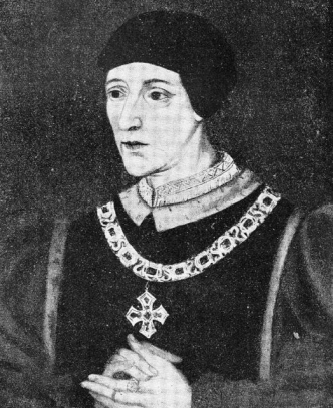
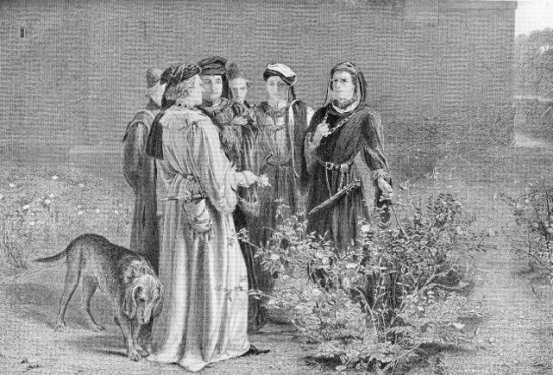

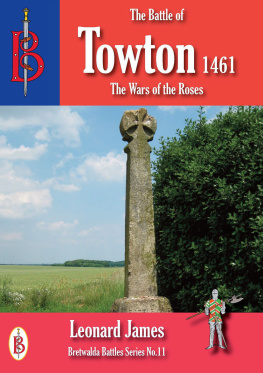
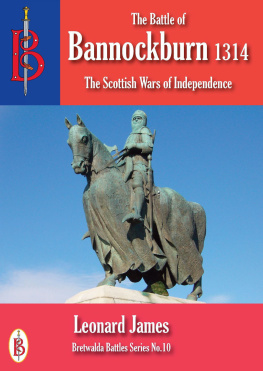
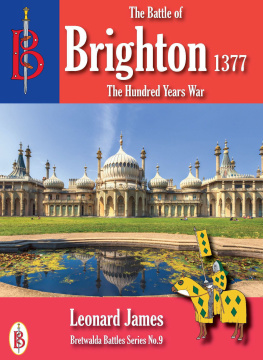
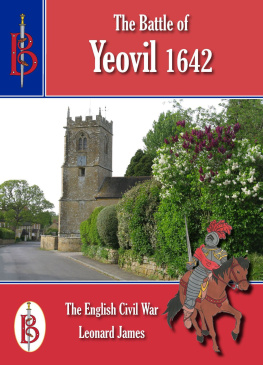
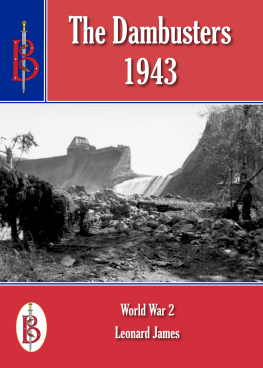
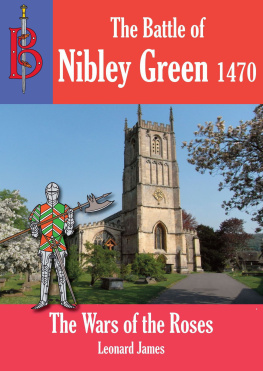
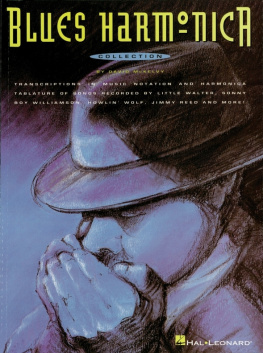
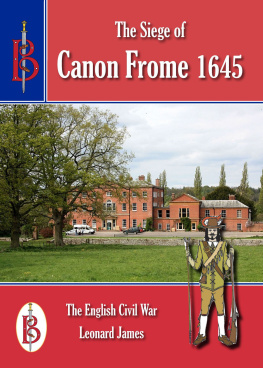
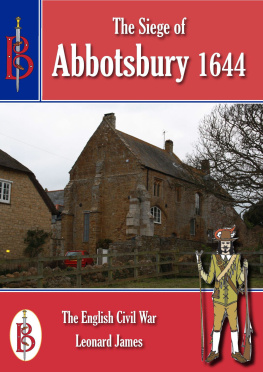
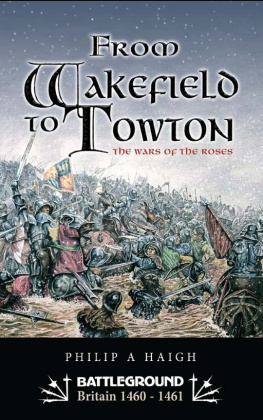

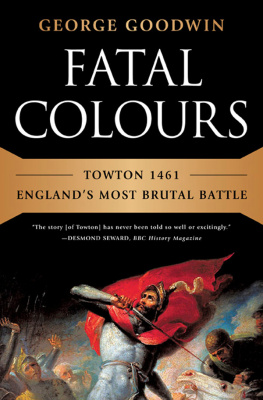
![Goodwin - Fatal colours : the battle of Towton, 1461 ; [Englands most brutal battle]](/uploads/posts/book/98484/thumbs/goodwin-fatal-colours-the-battle-of-towton.jpg)